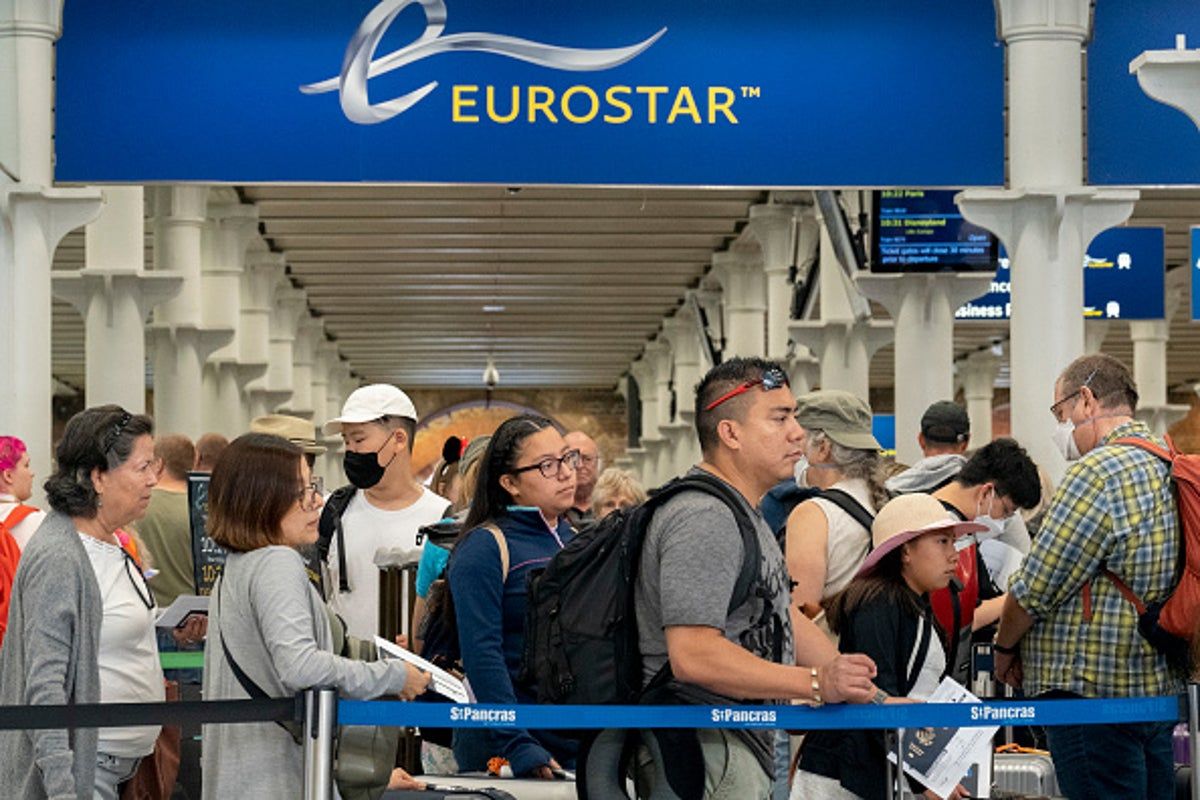Britons travelling to Europe this autumn may need to prove they have medical insurance and a return ticket to the UK under strict new border rules.
Passengers from the UK will also need to have their fingerprints and faces scanned to cross an EU border, under the new system for arrivals into the European Union, which comes into force on 12 October.
Non-EU citizens will see stamps in their passports replaced by biometric checks under the scheme that will be rolled out over six months and fully implemented by April 2026.
Anyone who refuses to provide the biometric data will be denied entry into the EU. Dedicated booths will be installed at airports, ports and train stations for travellers to scan their fingerprints and have their photo taken.
In addition to the new biometric requirements, UK travellers may be asked a series of questions to confirm details of their trip. These include proof of accommodation, whether they have sufficient funds, details of their medical insurance and proof of a return or onward ticket, The Times reported.
 Lorries line up on the A20 road to use the Dover Tap contraflow system into the Eastern Dock of the Port of Dover where the cross channel port is situated with ferries departing here to go to Calais in France (In Pictures via Getty Images)
Lorries line up on the A20 road to use the Dover Tap contraflow system into the Eastern Dock of the Port of Dover where the cross channel port is situated with ferries departing here to go to Calais in France (In Pictures via Getty Images)
These questions will usually be answered at automated kiosks, though anyone who responds “no” may be referred to a border officer for further checks.
Since Brexit, EU border agents have already been able to ask these questions of British passport holders, but most have only probed travellers they are unsure about. Travel industry bodies now believe that this will change once the new scheme launches in October.
Luke Petherbridge, director of public affairs at the travel trade body Abta, said: “More people are going to be asked these questions in the future than were in the past because most EES checks [entry/exit system] will be done at a kiosk.
“Its primary function is digitising the border. If you were to answer one of these questions in a way that you know wasn’t aligned with the answer they were looking for, you would be sent to a border guard. You wouldn’t necessarily be denied entry.”
Once people have provided their biometric data, this record will be valid for three years. The rollout was originally planned for November 2023 but was delayed over concerns it could cause long queues.
The UK government has warned travellers to “be prepared to wait during busy times” when the scheme starts.
The EU says the changes will strengthen border security and reduce illegal migration. In 2026, the EU will also be introducing a new travel authorisation system. Under this process, UK travellers will have to apply for authorisation to enter the Schengen area, a group of 29 countries. Passengers will have to provide personal information and details about their trip and pay a €20 fee to be allowed to visit.
Post-Brexit rules already limit Britons without EU residency or work rights to a maximum stay of 90 days within any 180-day period.
A government spokesperson said: “The EU has announced that 12 October will be the launch date for EES, and that these new controls will be phased in gradually. However, the questions highlighted may already be asked by agents at the EU border and are not new.
“The UK Government has been working closely with the European Commission, Member States, local authorities and the travel industry to prepare ports for EES, and we are supporting ports and carriers to ensure EES registration is simple for anyone travelling to the Schengen area.”
